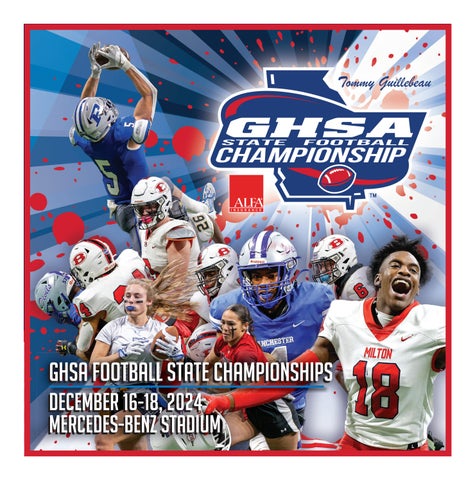NIL
Trump Weighs NIL Executive Order After Meeting With Nick Saban in Alabama
President Donald Trump is reportedly considering an executive order regulating Name, Image, and Likeness (NIL) compensation in college athletics. This move could inject new federal scrutiny into an already fragmented system. The idea emerged after Trump met with former Alabama Crimson Tide football coach Nick Saban during his recent visit to Tuscaloosa, where he delivered […]
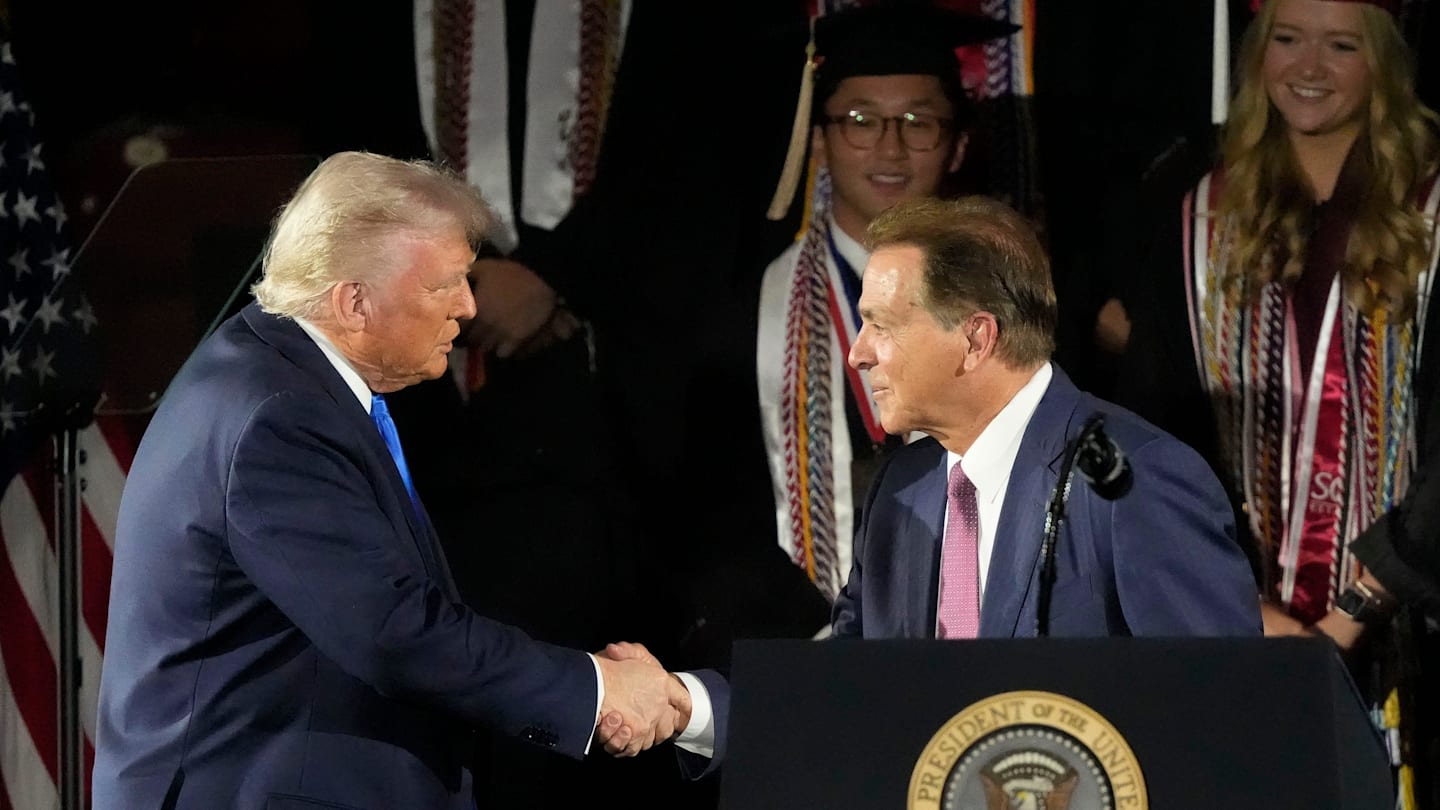
President Donald Trump is reportedly considering an executive order regulating Name, Image, and Likeness (NIL) compensation in college athletics. This move could inject new federal scrutiny into an already fragmented system.
The idea emerged after Trump met with former Alabama Crimson Tide football coach Nick Saban during his recent visit to Tuscaloosa, where he delivered the University of Alabama’s commencement address. Saban reportedly voiced his concerns about the current NIL landscape, describing it as chaotic and detrimental to the competitive balance of college sports. Trump agreed, instructing aides to explore what a potential executive order might look like.
While the details remain vague, any federal mandate on NIL would come at a volatile time for the NCAA and its member institutions. The landmark House v. NCAA settlement, which proposes $2.8 billion in back pay and allows schools to compensate athletes directly under a structured revenue-sharing model, is still awaiting final approval. Judge Claudia Wilken has delayed that decision, demanding changes to how roster limits would be phased in, arguing the current language could harm athletes currently on scholarship.
Amid this uncertainty, states are scrambling to get ahead. Arkansas recently passed a law exempting NIL earnings from state taxes, and Georgia and Alabama have floated similar legislation. These piecemeal approaches create regulatory disparities—some schools can promise recruits a better tax deal or more protected contracts, while others remain bound by stricter rules. Without federal intervention, the gap is likely to widen.
But what exactly would an executive order accomplish? Unlike legislation, executive orders cannot override state laws or judicial decisions, and future administrations can easily overturn them. They also lack the full force of Congressional regulation. However, such an order could set federal standards around contract transparency, disclosure, and oversight, curbing the more extreme state-level incentives that risk distorting recruiting and undermining athlete protections.
The NCAA has long called for a unified federal framework, arguing that operating within a fragmented system, where each state crafts its own NIL rules, is increasingly complex. Even in exploratory stages, a federal executive order signals that the issue is reaching new levels of national importance.
Whether or not President Trump follows through with an executive order, his engagement brings NIL reform squarely into the spotlight at the highest levels of government. As legal cases remain unresolved and states continue passing their laws, the future of college athletics hinges on courtrooms and campuses and the Oval Office.
NIL
College basketball transfer portal’s top eight available players before 2025 NBA Draft deadline
Eight of the 2025 college basketball transfer portal‘s top 150 players are still available after a hectic two-month period that saw more than 2,000 entrants. Three of the biggest names are actively in the 2025 NBA Draft process and have until June 15 to withdraw their names and return to college basketball. The others are hot […]
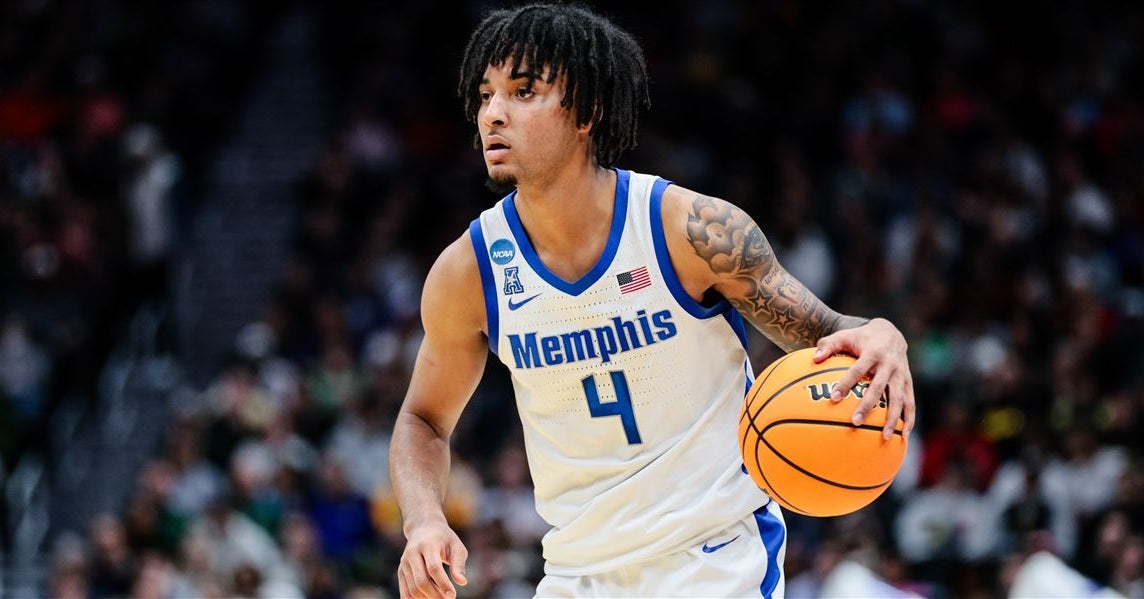
Eight of the 2025 college basketball transfer portal‘s top 150 players are still available after a hectic two-month period that saw more than 2,000 entrants. Three of the biggest names are actively in the 2025 NBA Draft process and have until June 15 to withdraw their names and return to college basketball. The others are hot commodities for a handful of the nation’s most prestigious programs.
The draft will potentially rob several of the transfer portal’s biggest names. Former UAB star Yaxel Lendeborg earned the top spot in the transfer portal rankings ahead of his April 5 commitment to Michigan. He’s since had his name jump up draft boards following a strong showing at the 2025 NBA Draft Combine and is a threat to keep his name in the process.
Duke transfer commitment Cedric Coward is another name to watch. The portal’s No. 13 overall prospect pledged April 28 to the Blue Devils but is leaning towards staying in the NBA Draft. Jon Scheyer and company developed a backup plan.
RELATED (VIP): Leaders emerge for Texas Tech transfer Darrion Williams
Below is a closer look at the eight uncommitted top 150 transfers.
NIL
Another school’s coach not happy with Maryland football, claims they “tampered” and gave his player $50,000
The move may have gone under the radar, but the Maryland football program made a significant transfer addition earlier this month. Richmond kicker Sean O’Haire committed to Maryland on May 3, potentially upgrading a position that has been an iffy one the past couple years. O’Haire, from Kildare, Ireland, played in four regular-season games and […]
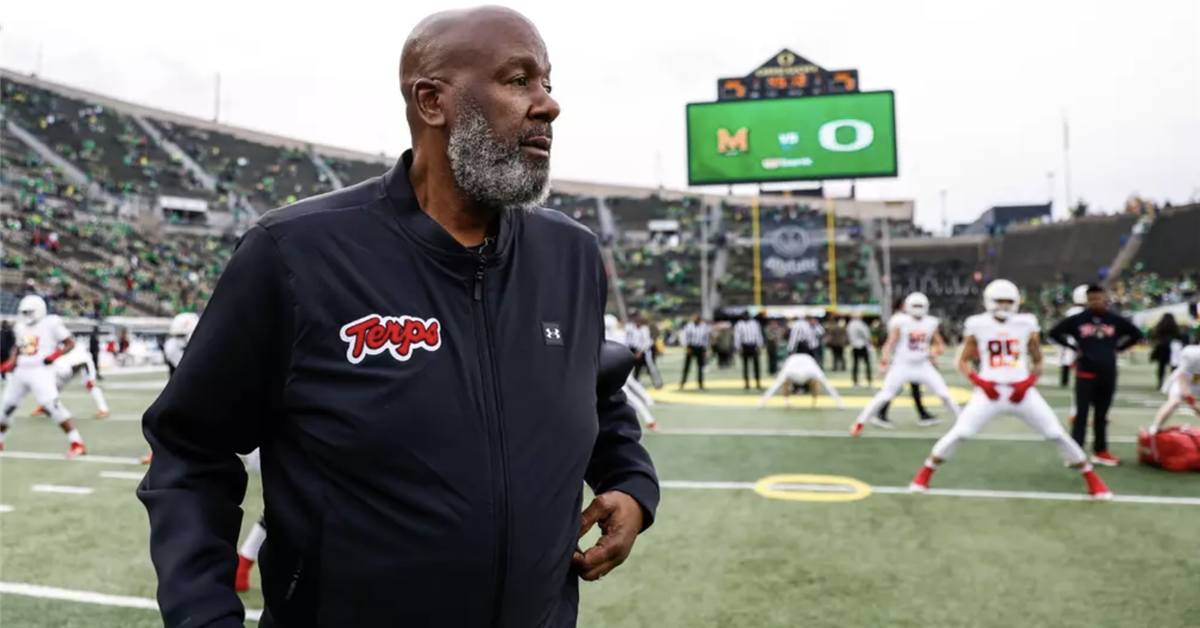
The move may have gone under the radar, but the Maryland football program made a significant transfer addition earlier this month.
Richmond kicker Sean O’Haire committed to Maryland on May 3, potentially upgrading a position that has been an iffy one the past couple years. O’Haire, from Kildare, Ireland, played in four regular-season games and one playoff game last season – his first playing American football – to preserve his redshirt, meaning he has four years of eligibility remaining. He went 12-for-12 on field goals, including a 50-yarder and two 47-yarders, and 9-for-9 on extra points last season.
The move of course hurt Richmond, a good FCS program that went 10-3 overall and 8-0 in the CAA last year, and head coach Russ Huesman is not happy.
John O’Connor, a writer for the Richmond Times-Dispatch, spoke to Huesman about the move. Here’s a blurb from his recent article:
“Maryland tampered with our kicker and gave him $50,000,” Huesman said Tuesday. “They came in, they tampered. The kid had zero interest in transferring, they offered him money. It happens all over the country and there’s nothing the NCAA’s going to do about it.
“So, Maryland just decided to come in. They liked our kicker and offered him money … It’s ridiculous, pretty frustrating.”
Huesman said he was “completely shocked” when O’Haire informed him of his transfer intention.
“When I found out how it all transpired, then I was unshocked, to be honest with you, because that’s what happens,” said Huesman. “He’s got an unbelievable future. This was not on him. This was on Maryland. This was on (O’Haire’s) handlers. It was on a lot of other people that I’m not real happy with.”
The transfer portal and NIL have upended the college sports landscape, and Maryland certainly is not among the most powerful teams in the sport either. Mike Locksley and the Terps lost tens of players to the portal themselves. Earlier this spring, several top players left the program for more money elsewhere, and program insiders said other schools had contacted some of them to convince them to transfer. Offensive lineman Terez Davis shocked everyone when he entered the portal late in spring camp and quickly transferred to NIL powerhouse Ole Miss. And defensive tackle Lavon Jacobs, who’d earlier changed his mind about transferring and returned to Maryland from the portal, left for more money at Texas, which reportedly is building a $40 million roster.
So “tampering” is essentially no longer a thing in today’s transfer portal anarchy, because it’s the norm.
“In terms of the process, it’s difficult, let’s be honest,” Penn State coach James Franklin said last month. “If you’re going to try and do it under the rules and how we’re supposed to be operating, the best players in the transfer portal, most of them have made the decision before they’ve ever gone into the transfer portal. People call it tampering or whatever it may be, but that’s happening.”
RELATED: Maryland Basketball Scoop: Sebastian Wilkins Confidence? | Another Hire | Who’s the PG?
So the Terps are far from the top of the food chain in the grand scheme. In today’s college football landscape, right or wrong, players at programs on Richmond’s level re ripe for the picking.
Locksley has often said that the transfer portal both “giveth and taketh.” This one instance of tampering is just among many that happen in college sports on a daily basis.
Huesman told O’Connor that if he sees Locksley, he would tell him he does not appreciate it. But he also said that he recognizes there is nothing that can be done about it. O’Connor added that Maryland “has no interest in responding to Huesman’s concern, according to a Terps’ spokesperson Wednesday.”
O’Haire replaces Jack Howes, who entered the portal in April and has since landed at Buffalo. O’Haire was named both the CAA and FCS National Special Teams Player of the Week honors after a record-setting performance against Towson on Nov. 2; he went 5-for-5 on field goals and scored 17 points to tie the Richmond single-game scoring mark and match the most field goals made in an FCS game all season.
The Terps and Richmond last played on Sept. 5, 2015, a 50-21 home win for Maryland. There are no future matchups on the docket.
Before you go …
— Get the latest Terps news delivered to your inbox FREE! Sign up for our email newsletter here and stay informed on Maryland basketball, football, recruiting and every other Terps storyline.
— Support Maryland basketball’s recruiting and player-retention efforts by joining TurtleNIL!
— Follow IMS on Facebook, Twitter, Tiktok and Instagram.
— Don’t miss any of our new video Terps content: Subscribe to InsideMDSports on YouTube and hit the notification bell so you know when new videos drop.
– Need a go-to Terps podcast? Listen to IMS Radio here, watch earlier episodes here and don’t forget to subscribe to IMS Radio on iTunes | Spotify | Stitcher | Podbean | Amazon Music | TuneIn | Apple Podcasts
NIL
Tennessee’s Zakai Zeigler sues NCAA: What to know about the case that could alter college eligibility rules
Tennessee star guard Zakai Zeigler filed a lawsuit Tuesday against the NCAA seeking a fifth year of eligibility — a potentially groundbreaking case that could have wide-reaching effects across college athletics. Zeigler, a four-year college player, claims in the suit that he is “arbitrarily barred” from competing in the final year of his five-year eligibility […]

Tennessee star guard Zakai Zeigler filed a lawsuit Tuesday against the NCAA seeking a fifth year of eligibility — a potentially groundbreaking case that could have wide-reaching effects across college athletics.
Zeigler, a four-year college player, claims in the suit that he is “arbitrarily barred” from competing in the final year of his five-year eligibility window while pursuing a graduate degree. His legal team argues that the redshirt system favors NCAA institutions over athletes in determining who qualifies for a fifth year of eligibility.
The case could impact not only Zeigler’s eligibility but also set a precedent for future athletes. While there is no direct precedent, the case may gain traction due to momentum in similar antitrust lawsuits against the NCAA.
For example, last year Vanderbilt quarterback Diego Pavia won a case seeking an additional year of eligibility. He argued that the NCAA’s rule counting junior college participation toward overall eligibility violated antitrust laws by limiting his ability to profit from name, image and likeness (NIL) opportunities. A judge granted Pavia an injunction, allowing him to play next season.
Zeigler’s case is unique in that he is the first non-junior college player to seek similar relief through the courts. He used four years of eligibility in four years — a common occurrence — but his lawsuit argues that his class, the class of 2021, is the first of the NIL era “to have their ability to engage in commerce truncated to four years.” Previous athletes in the NIL era received an extra year of “COVID” eligibility, which Zeigler’s legal team says was not extended to him and others in his class.
The case centers on the NCAA’s so-called “four-seasons” rule, which allows athletes to compete in four seasons within a five-year window. Zeigler’s attorneys argue the rule is overly restrictive and unlawfully limits athletes.
“We have filed a lawsuit on behalf of Tennessee basketball standout Zakai Zeigler to allow him to play college basketball in the 2025-26 season,” Andy Cofer, an attorney with Garza Law Firm, wrote in a statement to CBS Sports on Wednesday. “The lawsuit alleges that the NCAA’s rule permitting only four seasons of competition within the five-year eligibility window is an unlawful restraint of trade under federal and state antitrust laws.
“We have requested a preliminary injunction to allow Zakai to compete in the upcoming season while pursuing his graduate studies,” Cofer said. “We look forward to a swift resolution of this matter so that Zakai can begin preparing for next season.”
Whether the case succeeds remains uncertain. After reviewing a copy of the lawsuit obtained by CBS Sports, analysts Gary Parrish and Matt Norlander discussed its potential implications on Wednesday’s Eye on College Basketball podcast.
CBS Sports also spoke with Philip Sheng, a partner at Venable LLP and former Division I athlete who represents clients in areas including trademarks, branding and NIL protection.
Power Four schools could face expulsion from conferences if they don’t sign binding contract, per report
Shehan Jeyarajah
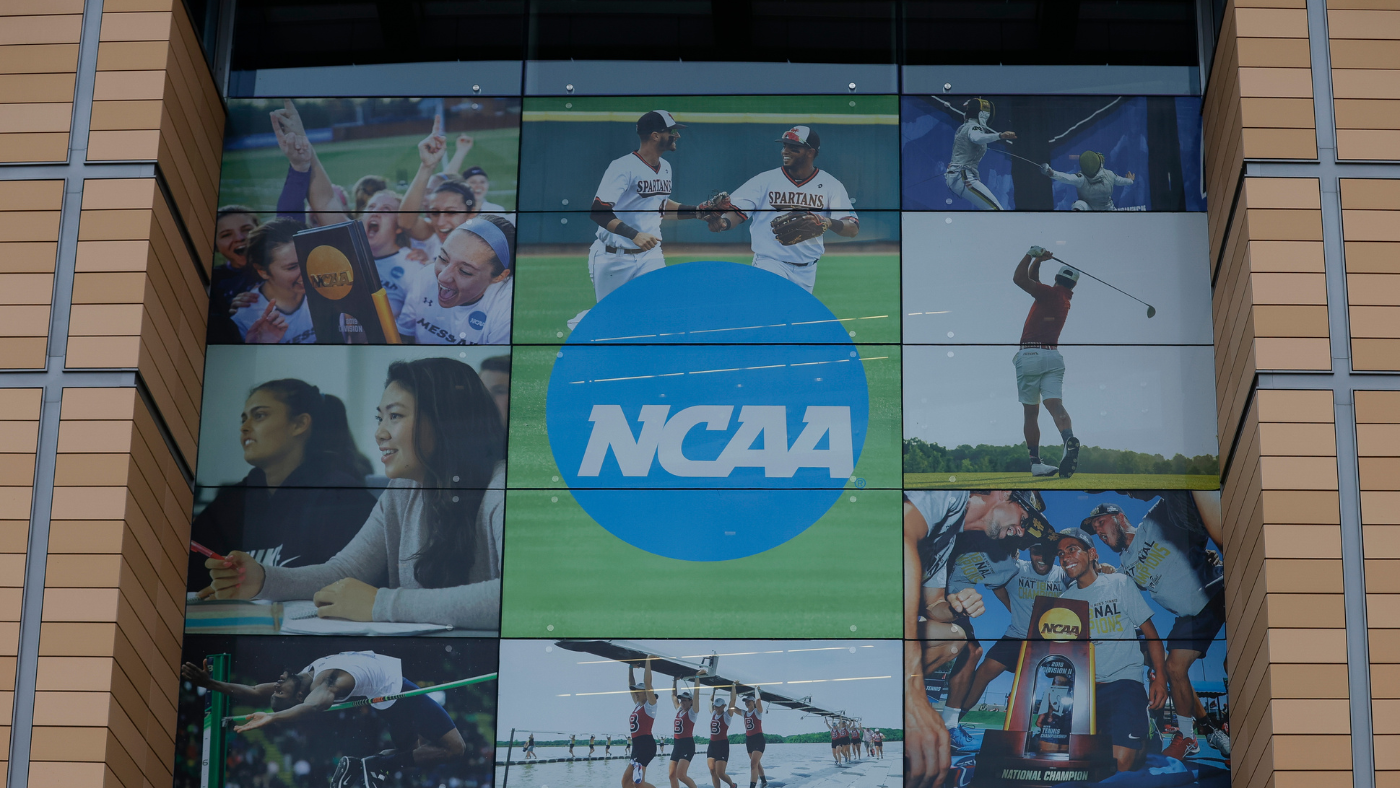
Does the case have legs?
Sheng believes Zeigler and his representation have “a chance” at winning in the case.
“The lawyers did a great job of checking each of the boxes and using prior cases as a roadmap,” he told CBS Sports. “This case is unique from others though because Zeigler didn’t play JUCO or in another NCAA division before playing D1. He’s asking straight up for a fifth year of Division I eligibility. If I were the judge, the biggest question I’d be asking is: where does it stop? If one fifth year is allowed, do we then allow a sixth? Do we let athletes play throughout grad school? That’s the slippery slope argument the NCAA will certainly raise, and it’s probably the hardest issue to tackle, in my view.
“The other interesting wrinkle to this is that the state of Tennessee recently passed a law prohibiting NCAA restrictions on NIL compensation,” Sheng continued. “While the law does not directly relate to NCAA eligibility rules, it reflects a growing trend of state legislatures pushing back against NCAA authority. It’s not surprising that this case was filed immediately after passage of the Tennessee law. It will be interesting to see whether the law influences the judge’s decision.”
Eye on College Basketball’s take
CBS Sports’ Gary Parrish and Matt Norlander both talked at length about the chances of Zeigler’s suit succeeding and the potential implications of it on Wednesday’s show. Parrish and Norlander also wrote some extended thoughts below, with each expressing skepticism that it will be successful, but neither going as far as to predict it ends one specific way or another.
From Gary Parirish
Once upon a time, not too long ago, the NCAA had rules prohibiting student-athletes from taking money from boosters. But, eventually, the legality of that was challenged in court. And now student-athletes are, in many cases, accepting millions of dollars from boosters annually. Once upon a time, not too long ago, the NCAA had rules prohibiting student-athletes from playing four years at the Division I level if they had already competed at the junior college level. But, eventually, the legality of that was challenged in court. And now Diego Pavia will start at quarterback for Vanderbilt next season.
So does Zakai Zeigler seeking a fifth year of eligibility sound crazy?
Perhaps.
But everything I just noted above also used to sound crazy right up until some long-standing “rules” faced legal scrutiny, at which point judges consistently ruled against the NCAA. So, if you’re Zeigler, why not take this shot? Rather than ask why he thinks he should get a fifth year of eligibility, perhaps the question should be why the NCAA thinks it can prevent him from doing it. Or, more specifically, can the NCAA legally stop him from doing it — especially when stopping him would literally prevent him from accepting a job he wants for millions of dollars?
To be clear, I have no prediction.
Who knows where this might go?
But Zeigler’s options for next season appear to be either playing college basketball for millions of dollars or playing professional basketball for much less. Given that reality, if I were him, I’d probably take this same shot, see if I can get my case in front of a favorable judge and hope for the best. Because, don’t ever forget, regardless of how much you or anybody else might dislike the idea of players competing in college for more than four years, it doesn’t necessarily mean the NCAA’s rule will endure legal scrutiny. Either way, I guess, we’re about to find out.
From Matt Norlander
Quite the interesting story we’ve got bubbling up six weeks after the end of the season. If the question is, Do you think this lawsuit will prevail? My answer is no. I would guess that Zeigler is ultimately denied a fifth year of eligibility. He’s played 138 games. I’m not convinced I’m right, but I think it’s more likely than not to lose because Zeigler’s timing isn’t ideal, he hasn’t been restricted on capitalizing on his NIL rights in recent years and the NCAA’s precedent of the redshirt rule isn’t discriminatory (as far as I can tell) on his eligibility case.
Now, that said, I do think this is worth trying. The circumstances in college athletics in 2025 are vastly different than they were in 2020, 2015, 2010 and so on. Zeigler is arguing that some players get the financial benefit of a fifth year by means of having used a redshirt season. I’m surprised it took this long for a player to bring this type of case to the courts. Zeigler’s challenge is being mocked by some, but the foundational reasoning is at least worth exploring. If he won, I wouldn’t have an issue with it. And if that happens, I think this lawsuit will wind up being a major one in this respect: Zeigler being granted a fifth year would open the door to legislation for the NCAA to move toward five years of eligibility for all of its Division I athletes in the years ahead.
For expanded thoughts, listen to Wednesday’s Eye on College Basketball, where Parrish and Norlander talked for more than 20 minutes about this topic.
What Zeigler’s lawyers are arguing
The lawsuit filed Tuesday claims the Sherman Act establishes the precedent that Zeigler should prevail because “the NCAA’s Four-Seasons Rule constitutes an unreasonable restraint of trade with no legitimate procompetitive justifiication in the post-Alston landscape.” Therefore, “the balance of hardships tilts decidedly in Zeigler’s favor,” the suit claims.
Attorney’s in the case must prove that the NCAA itself acknowledges that average NCAA athletes require more than four years to graduate, and they seem prepared to argue this point by stating the NCAA is aware of as much in three ways. From the lawsuit:
(i) its Progress Toward Degree requirement that students complete just 20% of their credit hours each year; (ii) the redshirt rule allowing a five- year participation model, and (iii) the NCAA’s celebrated six-year graduation rate metric.
The lawsuit also states the obvious ways in which Ziegler and other players in 2021, 2022, 2023 and so on will not benefit in ways classes before them could.
Let’s go to another excerpt from the lawsuit:
In the face of these facts, the NCAA itself has recently considered amending its bylaws to allow student-athletes to compete during all five years of the eligibility window, further undermining any claim that the current Four-Seasons Rule serves a procompetitive purpose. Further, since the COVID pandemic, NCAA athletes who began their careers in 2016, 2017, 2018, 2019, and 2020, have been allowed to compete in all five years of their eligibility window. Zeigler’s class is the first during the NIL era to have their ability to engage in commerce truncated to four years.
Attorneys are seeking immediate injunction to allow Zeigler to begin preparing for next steps in either his college or professional playing career.
Zeigler’s worth in NIL the market
Within the lawsuit is a window into the monetary value placed on Zeigler, both past and present, as presentation for what precluding him from playing would restrict him from earning. The suit states he earned $150,000 in his first year and that grew each year, culminating with approximately $500,000 in NIL earnings in his fourth and final season.
Those numbers pale in comparison to the projected value he could be worth next season. More from the lawsuit:
Based on projections from Spyre Sports Group, the NIL collective associated with the University of Tennessee, Zeigler’s NIL valuation for the 2025-26 season ranges from $2 million and $4 million. This valuation reflects the market value of an upperclassman with a proven performance record and high visibility, especially in a high-profile conference like the SEC.
Zeigler is not a projected pick in this year’s NBA Draft despite his value and production at the college level, thus the added incentive for him to seek an additional year of eligibility. NBA players on two-way contracts, which may be more befitting his talent at the next level, earn half the rookie minimum — which amounts to just over $500,000.
NBA Draft decisions: Will the top 2025 transfer portal stars stay or go?
Adam Finkelstein
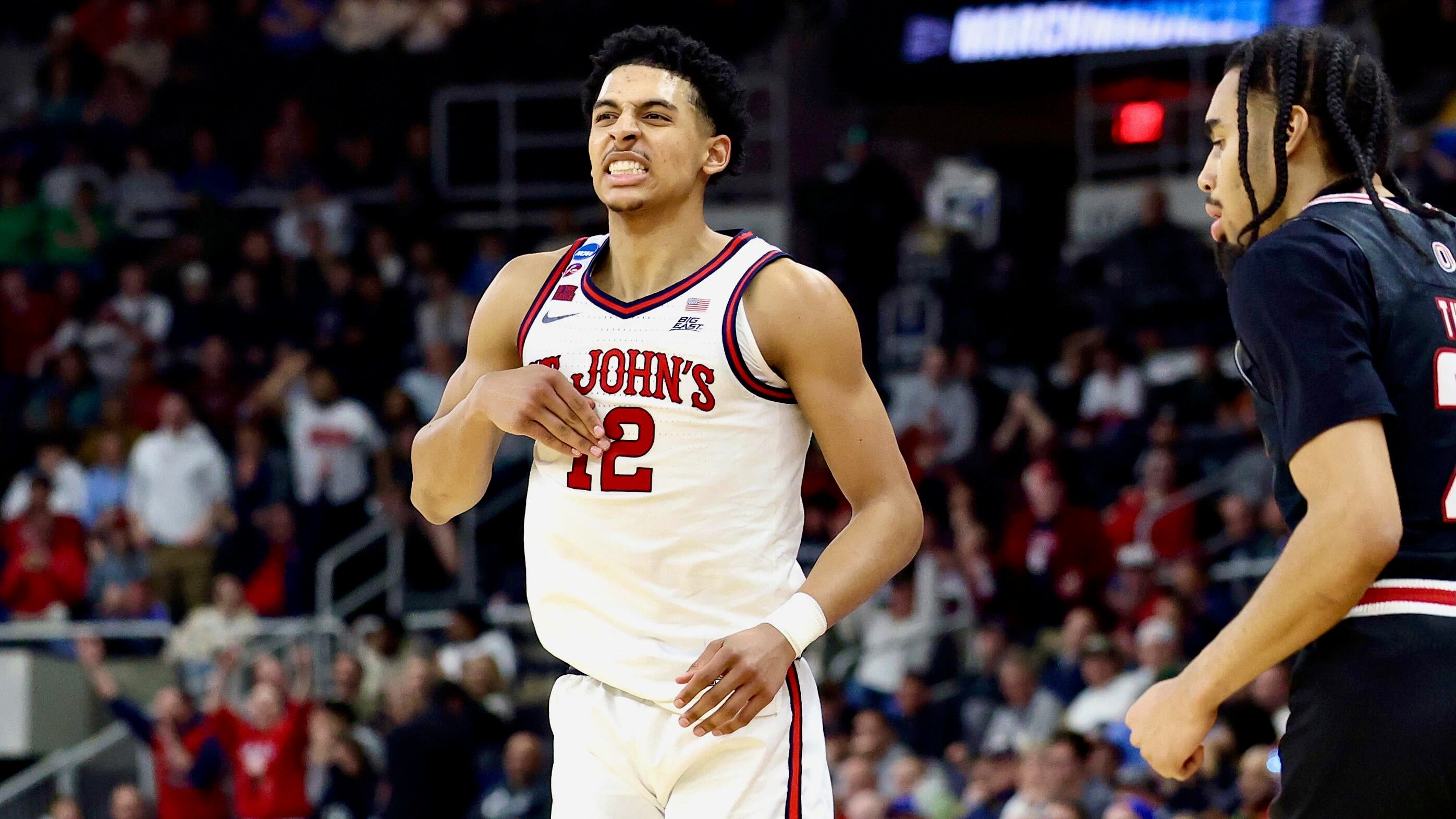
What a win for Zeigler could mean
While a win for Zeigler — a granting of an injunction to allow him to play next season — would set a precedent in similar cases, Sheng believes the judgement would mostly apply only to him in the case and not serve as a blanket ruling for others.
“If Zeigler is successful in obtaining a preliminary injunction, I expect the ruling will be specific to Zeigler and not apply to all athletes in general,” he said. “This will cause numerous copycat lawsuits to be filed while the NCAA appeals, and it will be up to each court to decide for each athlete in each lawsuit whether to grant an additional fifth year. It could become a mess.
“Interestingly, there have been rumors that the NCAA has been considering relaxing its four-year rule already to allow athletes to play a fifth year. If the rumors are true, a favorable ruling for Zeigler could accelerate those internal discussions and push the NCAA toward formalizing such a rule change.”
Players who could be affected
If granted an injunction in the case, Ziegler’s suit could open a can of worms for players in the 2021 class in a similar spot: those with immense value at the college level but not guaranteed to be high draft picks. As Sheng notes above, the ruling would likely apply only to Zeigler, but it could set off a series of other similar copycat suits. (And among those who would have good cases would be college stars like Kam Jones, Hunter Sallis, Ryan Nembhard and others.
Many of this year’s top available players either in the transfer portal market, high school market or international market are largely in place already having committed to either the NBA draft or to their respective schools. But a potential ruling in favor of the plaintiff would open up the marketplace to a wide range of potentially eligible players with big talents who would be highly sought.
NIL
BSB’s Tyriq Kemp Named a Semifinalist for Brooks Wallace Award
OVERLAND PARK, Kansas – Baylor baseball senior shortstop Tyriq Kemp has been named a semifinalist for the 2025 Brooks Wallace Award, as announced Wednesday by the College Baseball Foundation. The award honors the nation’s top shortstop and will be presented by the College Baseball Foundation later this year. It’s named after former Texas Tech […]

The award honors the nation’s top shortstop and will be presented by the College Baseball Foundation later this year. It’s named after former Texas Tech shortstop Brooks Wallace, who played for the Red Raiders from 1977 to 1980 and died of leukemia at the age of 27.
The top 30 shortstops in the country were named as semifinalists for the award on Wednesday, recognized for their combined offensive and defensive performances from this season.
Kemp, an All-Big 12 First Team selection, broke out this season hitting .364 and slugging .551 with a 1.004 OPS. He led the Bears with 72 hits in the regular season, including 14 doubles, one triple and a career-high seven home runs. Kemp scored 48 runs and drove in 39, moving into the three-hole in BU’s batting order for the latter part of the season.
One of the nation’s premier defenders, Kemp ranked second among Big 12 shortstops and eighth nationally with 11.45 defensive runs saved this season. He committed only eight errors and fielded at a .966 clip, tracking to be one of the best defensive seasons by a Baylor shortstop in the Statcrew Era (since 2003).
Kemp is one of three Big 12 shortstops named as semifinalists, joining Arizona State’s Matt King and Utah’s Core Jackson.
Finalists for the 2025 Brooks Wallace Award will be announced on June 4, with the winner to be announced at a date to be finalized later that month.
To stay up to date on all things Baylor baseball, follow the team on its official Facebook, Twitter and Instagram accounts: @BaylorBaseball.
-BaylorBears.com-
NIL
Mack Brown opens up about Bill Belichick at North Carolina: ‘No reason they shouldn’t be successful’
North Carolina is making major changes to ensure that new coach Bill Belichick succeeds in his role with the football program — according to his predecessor, Mack Brown, at least. Brown said during a recent interview on SiriusXM Sports Radio that North Carolina has overhauled its approach to name, image and likeness (NIL) deals and […]
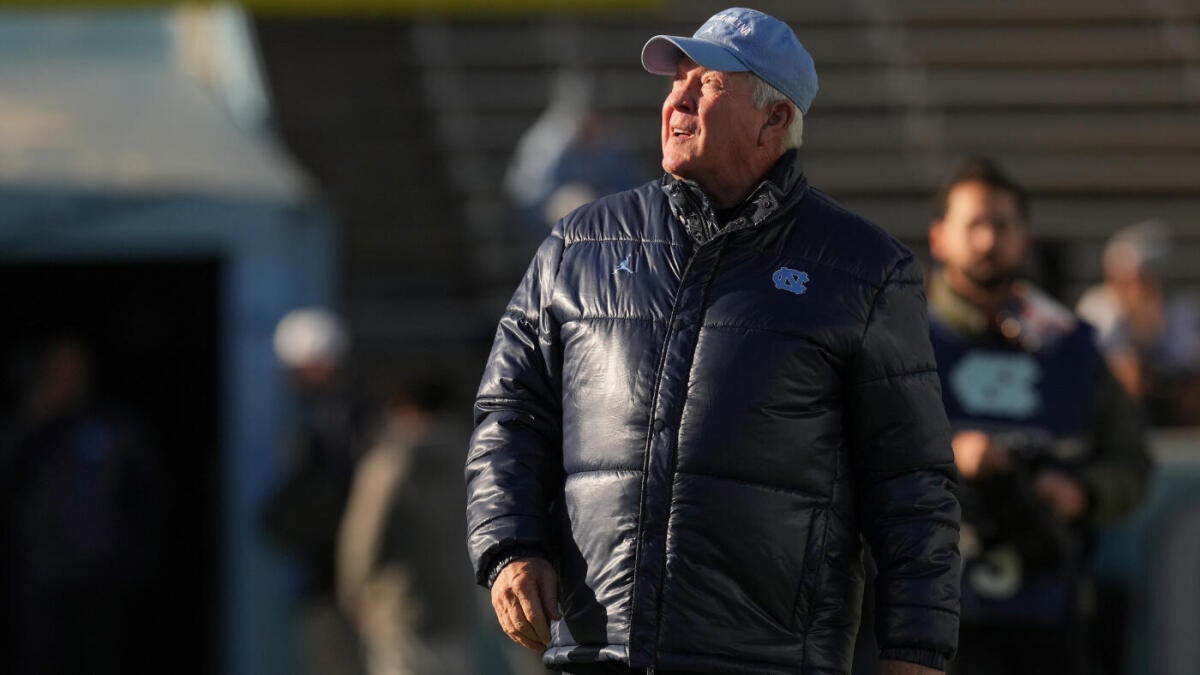
North Carolina is making major changes to ensure that new coach Bill Belichick succeeds in his role with the football program — according to his predecessor, Mack Brown, at least.
Brown said during a recent interview on SiriusXM Sports Radio that North Carolina has overhauled its approach to name, image and likeness (NIL) deals and its rigorous academic standards to aid Belichick in his transition.
“As far as North Carolina and Bill Belichick, he’s arguably the best coach ever,” Brown said. “They’ve committed money to it, they’ve helped him with academics, they’ve lowered those standards some. So there’s absolutely no reason they shouldn’t be successful.”
Brown claims that he did not have the same resources. His second stint with the Tar Heels began in 2019 on the cusp of the NCAA’s sweeping NIL and transfer portal reforms. He went 15-10, with consecutive bowl appearances, in 2019 and 2020.
But in 2021, the first season after the NCAA allowed athletes to profit off of their NIL, Brown’s Tar Heels fell to 6-7.
“We always built programs on fit, and in our last couple years there, we were having to get parents with money,” Brown said. “We were trying to get kids over a 3.0 (GPA) because that’s who we could get. We signed 26 players at North Carolina our next-to-last year — high school players — and didn’t pay them a penny. I felt guilty.”
In spite of North Carolina’s financial woes, the Tar Heels rebounded with a nine-win season and an appearance in the ACC Championship Game — the high watermark of Brown’s second tenure — and produced a respectable eight wins in 2023.
Through it all, the Tar Heels still struggled to pay their top stars. Brown said that running back Omarion Hampton, a two-time CBS Sports All-American and a first-round pick in the 2025 NFL Draft, turned down offers over $1 million to transfer and stayed with UNC through 2024 for $300,000.
“I told him he should leave because it was just crazy as you were looking at those things.” Brown said.
North Carolina gradually lost ground in the ACC, and in 2024 fell back to 6-6 with a paltry 3-5 showing in conference play. As a result, North Carolina decided to move on from Brown.
“It was time for me — North Carolina didn’t have NIL money,” Brown said. “I said we’re kind of a slow bleed. We weren’t able to recruit the top kids like we were when we first got there. So it was time for them and it was time for me, so it was kind of like a divorce. Everybody was ready.”
North Carolina’s administration replaced the 73-year-old Brown with 73-year-old Belichick, who comes to Chapel Hill with eight Super Bowl rings as an assistant and head coach at the NFL level. Though this is Belichick’s first go around as an on-field collegiate coach, it hasn’t taken him long to adjust to recruiting.
He quickly went about overhauling North Carolina’s roster in his image with a robust 40-transfer signing class during the 2025 cycle. The Tar Heels also inked 29 high school prospects that will be freshmen this season.
“You’ve got a chance to succeed at the highest level and I expect them to do that and I’m proud for them.” Brown said.
NIL
Memphis Tigers guard Dante Harris enters transfer portal
Tim Buckley Tim is a veteran sportswriter who graduated from CBHS in Memphis and the University of Missouri. He previously covered LSU sports in Baton Rouge, and the University of Louisiana football and basketball for The Daily Advertiser/USA TODAY Network in Lafayette, the NBA’s Utah Jazz for the Deseret News in Salt Lake City, the […]
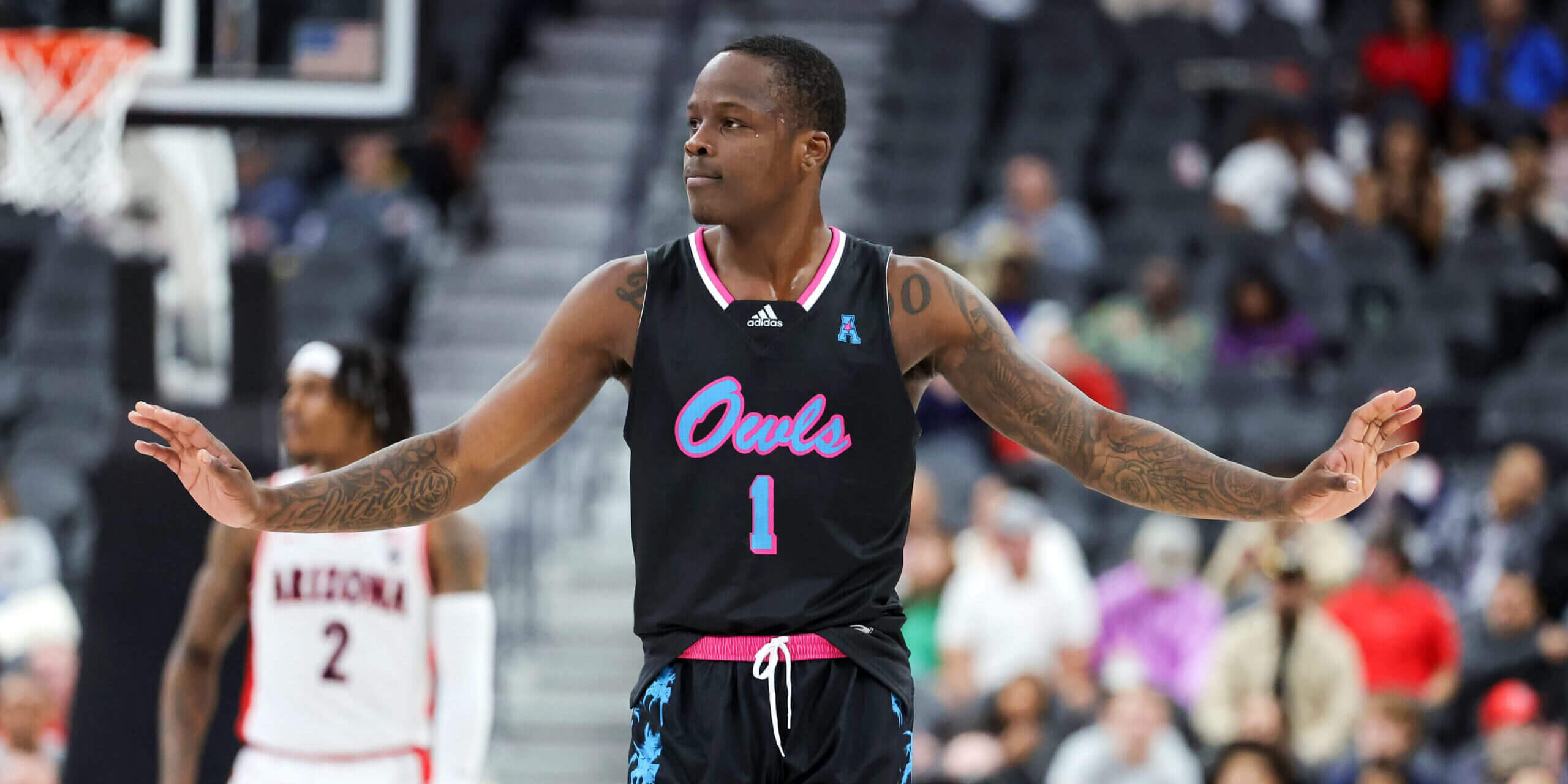

Tim Buckley
Tim is a veteran sportswriter who graduated from CBHS in Memphis and the University of Missouri. He previously covered LSU sports in Baton Rouge, and the University of Louisiana football and basketball for The Daily Advertiser/USA TODAY Network in Lafayette, the NBA’s Utah Jazz for the Deseret News in Salt Lake City, the NHL’s Tampa Bay Lightning for the St. Petersburg Times in Florida, and West Texas State basketball for the Amarillo Globe News in Texas.
-
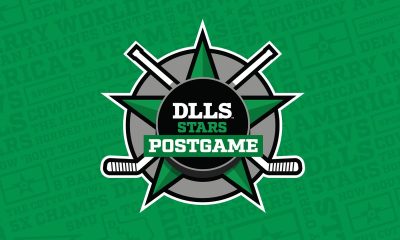
 Fashion3 weeks ago
Fashion3 weeks agoHow to watch Avalanche vs. Stars Game 7 FREE stream today
-

 High School Sports2 weeks ago
High School Sports2 weeks agoWeb exclusive
-
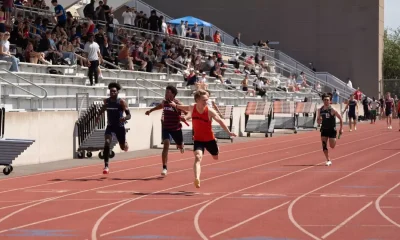
 Sports2 weeks ago
Sports2 weeks agoPrinceton University
-
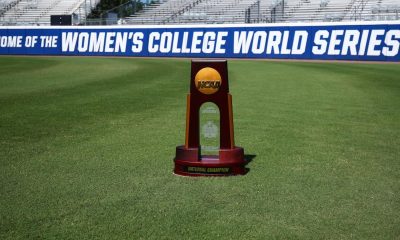
 Sports2 weeks ago
Sports2 weeks ago2025 NCAA softball bracket: Women’s College World Series scores, schedule
-

 Motorsports2 weeks ago
Motorsports2 weeks agoBowman Gray is the site of NASCAR’S “Advance Auto Parts Night at the Races” this Saturday
-
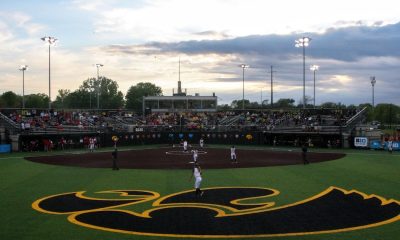
 NIL2 weeks ago
NIL2 weeks ago2025 Big Ten Softball Tournament Bracket: Updated matchups, scores, schedule
-
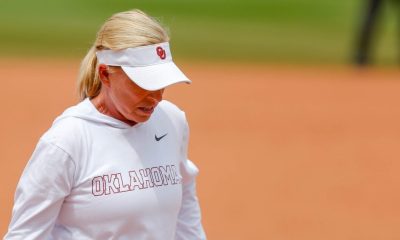
 NIL2 weeks ago
NIL2 weeks agoPatty Gasso confirms Sophia Bordi will not finish season with Oklahoma softball
-

 Motorsports2 weeks ago
Motorsports2 weeks agoMOTORSPORTS: Three local track set to open this week | Sports
-

 Motorsports2 weeks ago
Motorsports2 weeks ago$1.5 Billion Legal Powerhouse Announces Multi-Year NASCAR Deal With Kyle Busch
-
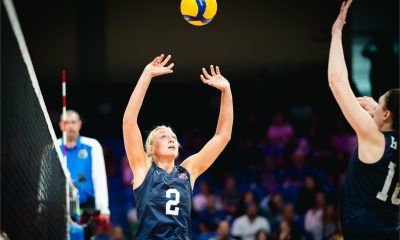
 Sports2 weeks ago
Sports2 weeks agoUSA Volleyball Announces 2025 Women’s VNL Roster














 Katie Ledecky Dominates the 1500m Freestyle –
Katie Ledecky Dominates the 1500m Freestyle –  World Record at the World Championships 2015!
World Record at the World Championships 2015!




